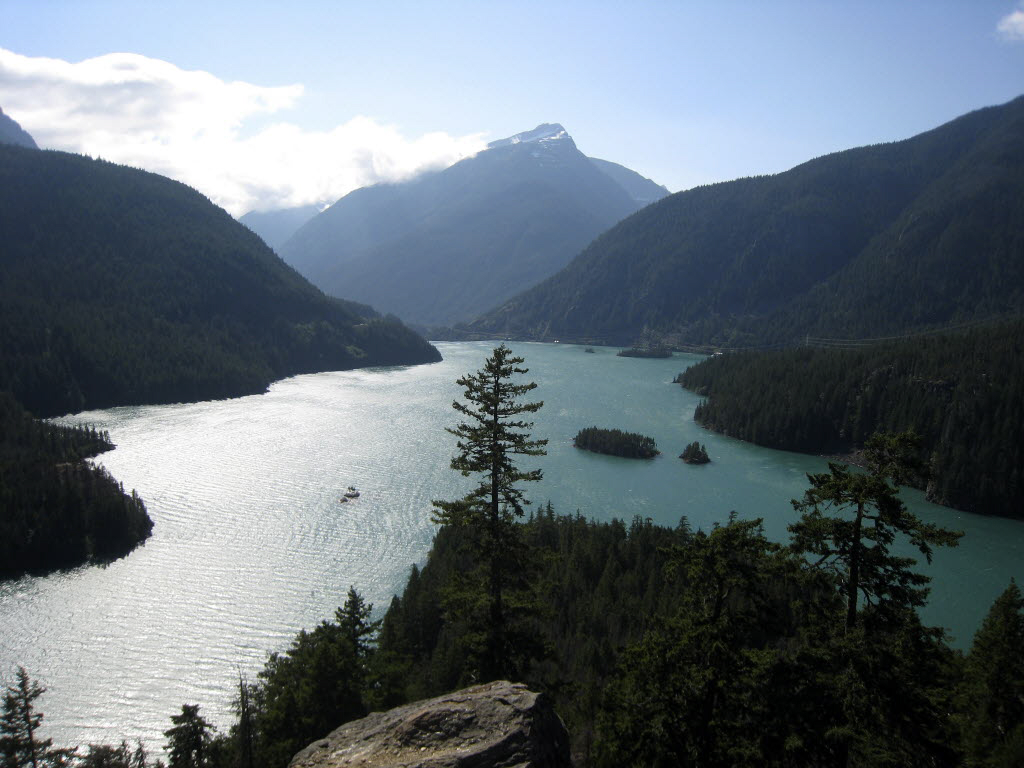SEATTLE — It’s a scenic jewel hidden in plain sight, yet it’s one of the least-visited national parks in the country.
North Cascades National Park, created in 1968, has its champions though, and some of them want to see the park expanded to include more than 200,000 acres of federal land left off the original proposal.
Liberty Bell? That iconic peak isn’t in the park. All of that mountain scenery clawing the sky along state Highway 20? Nope. The rain forest and old-growth trees along the Baker River? No.
Advocates say they want to change that.
But they face formidable challenges. Battles to get Congress to expand parks and wilderness areas usually take years and are often opposed by those who fear new restrictions on recreational use or development. And the North Cascades proposal, first floated three years ago, lacks a champion in Congress.
But supporters say they are in it for the long haul. They are a high-powered group with deep roots in the state’s conservation movement.
They include former U.S. Sen. Dan Evans, who in Congress helped write the state’s wilderness areas into law, and as governor, stood up for creation of the park. Polly Dyer of Seattle, who as a founding board member of the North Cascades Conservation Council helped get the original park legislation through Congress, is also a supporter. They are joined by conservationists, mountaineers and others.
“It’s wild, and it should always stay that way,” said Dyer, 92, who recently camped at Harts Pass in the Okanogan-Wenatchee National Forest.
Underutilized
To Dyer, this landscape, with meadows that give way to glacier-carved valleys and infinite views to the west, always should have been in the park.
But it and other landmark landscapes on federal land were left out because of controversy over logging and other extractive uses that could have sunk the park proposal. Pulling back the boundaries of the park left out important places that today remain unprotected and underutilized.
“We fought for every inch,” said Evans, who battled for the park as a Republican governor of Washington. “There was opposition, as there always is, especially in those days when natural-resource industries were a much bigger part of our economy, and particularly with the timber industry, there was a lot of opposition to any park at all.”
As the population grows, protection is needed now more than ever, Evans said.
“We have got to preserve these places. Otherwise, we lose an awful lot of our heritage,” he said.
The park always has been an underdog.
It lacks the sort of marquee attractions that bring in tourists. North Cascades National Park also is a struggle to reach on a highway that is closed some eight months of the year. Even when Highway 20 is open, it provides no direct, paved access to the park, which is reached only by footpath or gravel road.
The National Park Service, which tracks visitation by backcountry permits, and estimates of day hikers and visitors to Cascade Pass, rates North Cascades National Park the least visited of Washington’s three national parks, with just more than 20,000 visitors a year. That is the second-lowest rate of visitation to a national park in the Lower 48, after a park on an island in the Great Lakes.
The park also suffers a bit of an identity crisis. Highway 20 until this month had no signs denoting the park. And even the North Cascades National Park visitor center in Sedro-Woolley sells memorabilia featuring landscapes labeled as park landmarks but that are outside its boundaries.
More amenities
Part of the goal of the expansion is to increase visitation by bringing the boundaries to the highway and adding about $23 million in amenities, with the cost spread over at least five years.
The American Alps Legacy Proposal includes new trails and campgrounds to provide more family-friendly, lower-elevation, three-season recreation opportunities that today’s park can’t offer. The expansion also would protect important habitat for salmon and other wildlife, including animals in need of big, open space, from grizzly bears to mountain goats.
First rolled out in 2009, the original proposal has been scaled back.
The eastern expansion boundary was pulled back to Washington Pass from the Mazama area when critics in the Methow Valley opposed having the park in their backyard. That shrank the proposed expansion to a little more than 237,000 acres from 350,000.
Some people say they just don’t like the National Park Service as a landowner, because they want to be able to do whatever they want in the woods: take pack animals, hunt, camp, bike, enjoy motorized recreation or bring their dogs. They also want to go wherever they want whenever they want in the backcountry instead of having to make reservations or get a permit.
“To me, coming into the backcountry is partly about getting off the clock,” said Perry Burkhart of Gig Harbor, who with his wife, Sharon, likes to tour the backcountry of the North Cascades using goats to carry gear.
“We can’t take our goats in the park, and we’d have to get permits. It restricts your freedom,” he said.
But outside the park, lands that also lack federal wilderness protection are vulnerable to mining, logging, hydropower development and road building.
“This is about long-term protection,” said Jim Davis, president of American Alps.
With Congress consumed with other issues, it’s hard to get attention for a park expansion proposal.
When asked about the proposal, Sen. Maria Cantwell was noncommittal. “Sen. Cantwell wants to increase use and access to the North Cascades National Park,” spokesman Jared Leopold said Friday. “She looks forward to input from the community on how best to do that.”



